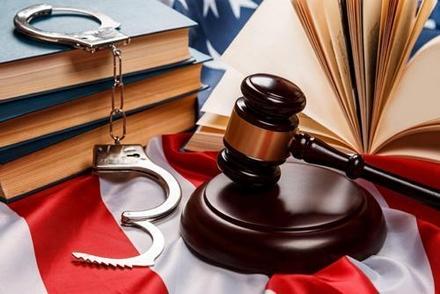TELEPHONES ANSWERED 24 HOURS A DAY
What You Should Know About Presidential Pardons
 In the last few days of his presidency, President Donald Trump issued more than 140 pardons and commutations to individuals throughout the country. The list of those who received executive clemency includes high-profile musical artists, criminal justice activists, and people who were serving long prison sentences for relatively low-level federal offenses. But, where does the president get the authority to issue presidential pardons, and are there limits on who can receive executive clemency?
In the last few days of his presidency, President Donald Trump issued more than 140 pardons and commutations to individuals throughout the country. The list of those who received executive clemency includes high-profile musical artists, criminal justice activists, and people who were serving long prison sentences for relatively low-level federal offenses. But, where does the president get the authority to issue presidential pardons, and are there limits on who can receive executive clemency?
Pardons in the U.S. Constitution
Article II of the U.S. Constitution addresses the executive branch of the United States government, namely, the office of President of the United States of America. In Section 2 of Article II, the Constitution states that the president “shall have Power to Grant Reprieves and Pardons for Offences [sic] against the United States, except in Cases of Impeachment.” In short, this means the president has the authority to grant clemency to any individual who has been convicted of, or who is or might be under investigation for, a federal crime unless the individual in question is facing impeachment from public office.
The Constitution does not offer much more in the way of guidance or limitations regarding presidential pardons. However, the Department of Justice has set up a system through which petitions for executive clemency can be submitted and passed on to the president for consideration.
Outgoing Presidents Often Issue Pardons
While the Justice Department maintains an Office of the Pardon Attorney to provide recommendations on each clemency petition, the president makes the final decisions. Some U.S. Presidents have been much more merciful than others. Harry Truman, for example, granted 41 percent of the clemency petitions he received, while George H.W. Bush granted just 2 percent.
The President of the United States can issue a reprieve or pardon at any point during the president’s term in office. It has, however, become almost a tradition for an outgoing president to issue a flurry of pardons and commutations in the last few weeks before a new president is sworn in. In some cases, these “11th-hour pardons” represent the president’s attempt to cement a legacy by fulfilling promises before leaving office. In recent decades, however, controversies have arisen as a result of the president issuing pardons to donors, supporters, and friends.
Can the President Issue a Self-Pardon?
While it did not come to pass, many people spent the last several weeks wondering if President Trump would attempt to pardon himself in connection to various possible criminal investigations. No U.S. President has ever issued a self-pardon, and if President Trump had done so, it would have created some very interesting legal questions. The Constitution is silent on self-pardons, and case law has not established a judicial precedent on the matter. In 1974, the Justice Department issued a memo suggesting that a self-pardon was tantamount to serving as a judge in one’s own case, which violates a fundamental rule of American justice, but a memo is not a binding legal ruling. In short, a self-pardon by a sitting U.S. President would eventually lead to the issue being taken up in federal court—potentially all the way to the Supreme Court—and it is impossible to speculate as to how the courts would decide.
Contact a Chicago Federal Criminal Defense Attorney
If you have questions about any aspect of defending against federal criminal charges, including the concept of executive clemency, contact an experienced Illinois federal criminal defense lawyer at the Law Offices of Hal M. Garfinkel. Our team will help you find the answers you need and provide the skilled guidance you deserve. Call 312-629-0669 for a free consultation today.
Sources:
https://constitution.congress.gov/browse/essay/artII_S2_C1_3_1_1/
https://www.nhpr.org/post/ask-civics-101-why-do-outgoing-presidents-issue-pardons-and-how-do-they-work
https://www.brennancenter.org/our-work/research-reports/presidential-pardon-power-explained




